The Enemy Within
I always prayed I'd be a peacemaker. Yet I battled so much hatred and violence, I thought God hadn't heard my prayers. But now, with this writing journey, I see he answered me in his good time.
This is a chapter from THE EGYPT FILES.
WARNING: This essay talks about domestic violence and rape.
One-time or recurring donations can be made at Ko-Fi
You can listen to me read this essay here:
Sometimes I think about Sheikha (Princess) Latifa of Dubai and wonder what happened to her.

Thinking of Latifa reminds me of another princess, Meghan Markle. What a complainer. All she ever does is cry about how racist and oppressive everyone is towards her. In fact, she’s so persecuted, Netflix gave her a $100 million contract so she could complain about it in a documentary.
Isn’t America great? You can become a billionaire by exploiting your oppression.
Life in the West is so horrible for Harry and Meghan, they are thinking of moving to Dubai:
Meghan praised the Emirate last week on the accomplishment of its vast amount of high-end malls being a fan of the Fashion Avenue in Dubai Mall, kicking off the rumors. Harry also chimed in with his awe of Dubai’s famous brunch scene, “Where else can you get s*** faced for 4 hours by the beach with those amazing views” he added.
For the two royals, (and anyone else with money to burn), “Dubai is the only place where they can truly be appreciated for who they are – a pair of wealthy, privileged celebrities constantly seeking attention and validation from the public.”
I doubt Meghan’s ever heard of Sheikha Latifa. Or if she has, she could care less. Latifa is one of 25 children of Sheikh Mohammed bin Rashid al Maktoum, the ruler of Dubai. While Meghan parties in Dubai, Latifa no doubt dreams of escaping to the West, the place Meghan says is oppressing her.
Below is the disturbing last video released by Latifa, where she talks about the torture she has endured and how she is being held hostage.
Here is an account of her last failed attempt to escape:
…on the night of 4 March 2018, an unprecedented international abduction took place in which a significant Indian and UAE military force converged and carried out an unprovoked attack on the small boat off the coast of Goa, India. This force – consisting of at least two state-of-the-art ships from the Indian coast guard, a UAE Navy frigate, several hundred men, including an elite commando unit and a detachment of the UAE armed and state security forces, helicopters and planes – was sent to illegally capture and kidnap one young woman.
That the troops carried out the raid when they knew they were blatantly violating international law by attacking an American ship in international waters speaks of the power of the man they indirectly served. Sheikh Mohammed bin Rashid Al Maktoum is the unelected and unchallenged ruler of Dubai, and the woman whose dream of freedom was brutally and violently crushed that night was his daughter, Sheikha Latifa.
While being held following the raid, one of the troops in charge told Latifa: “Your father told us to beat you until we kill you. That’s his orders. Your father’s orders. Your father, the ruler of Dubai – that’s what he said.”
Nothing illustrates the willful blindness of people in the West to the cruelty of Islamic rule than the contrast between Meghan Markle’s whining complaints and Sheikha Latifa’s very real torment.
I understand Princess Latifa’s struggle. I know what it’s like to be imprisoned while everyone around you acts like nothing is wrong. At the same time, I cannot respect Meghan Markle and all the other hypocrites who suddenly “care” about the plight of people far away when they never cared before and blatantly ignore injustices caused by the regimes they are refusing to condemn.
The school year is ending, and the protests are winding down. What have they accomplished? Will they “free Palestine”? What a joke. All that these protests have done has been to belittle the suffering of the Gazans and embolden Hamas.
As Hamza Howidy, a Palestinian peace advocate from Gaza City, says in a poignant letter to the protestors:
You're Hurting the Palestinian Cause
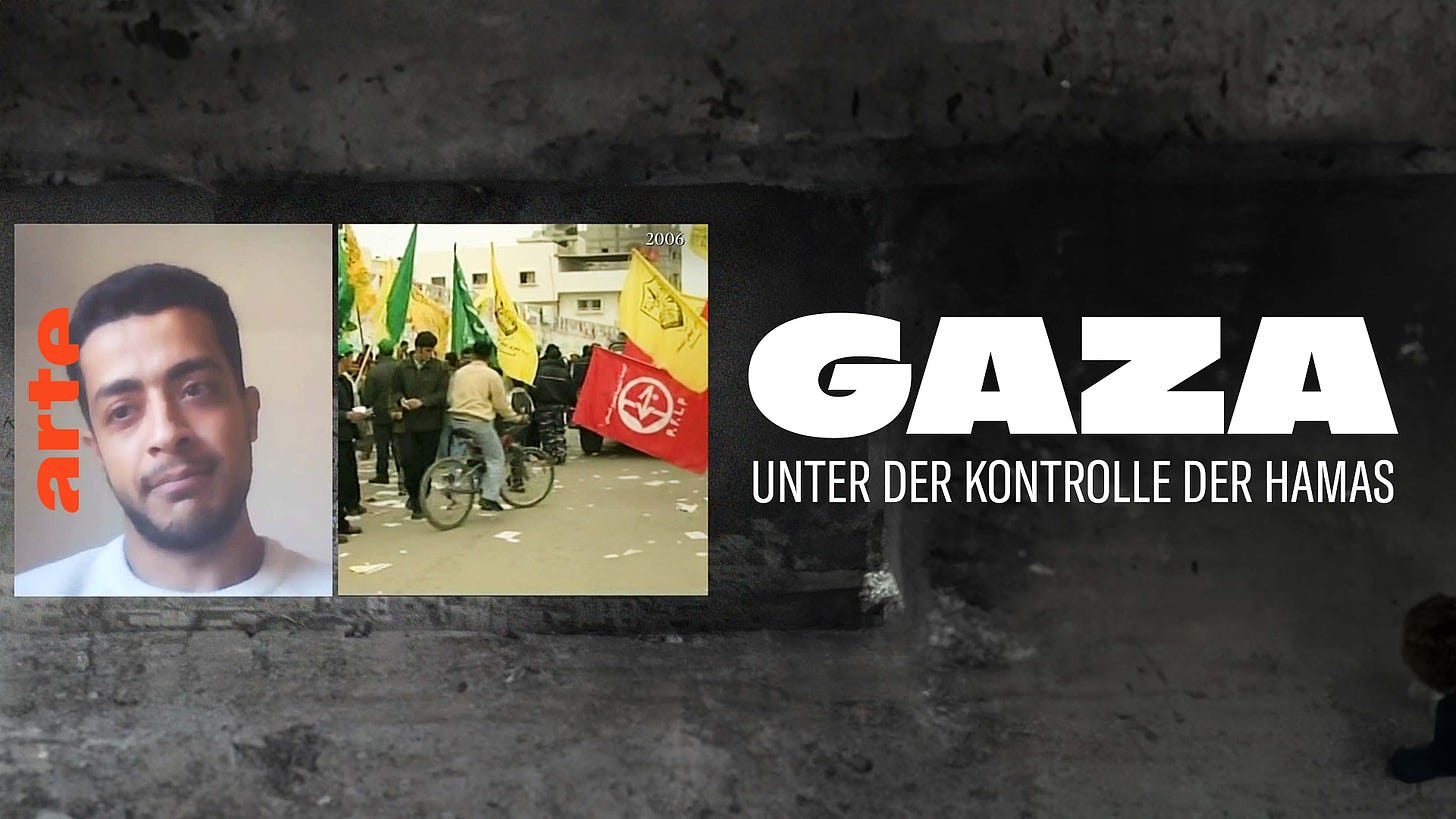
It pains me to say this as a Palestinian from Gaza. As my home is destroyed and too many killed, I never thought I would find myself criticizing those speaking up. And yet, I cannot be silent about what I am seeing. The truth is that the manner in which many gather to voice their support for Palestinians does more to hurt our cause than help it.
You know what would help the Palestinians in Gaza? Condemning Hamas' atrocities. Instead, the protesters routinely chant their desire to "Globalize the Intifada." Apparently they do not realize that the Intifadas were disastrous for both Palestinians and Israelis, just as October 7 has been devastating for the people of Gaza.
They should be speaking up for the innocent victims of Hamas—both Palestinian and Israeli. Instead, they endorse Hamas's ideology with posters announcing resistance "by any means necessary" and chants of "from the river to the sea," effectively glorifying the Al-Qassam brigades, Hamas' military wing, whose ideology is entirely based on the elimination of more than 6 million Israelis from the land.
I assumed individuals who initiated these slogans were uninformed about what they were advocating for. I saw the LGBTQ flag frequently flown among people chanting lines from Hamas's charter, and I initially wanted to educate them, to warn them that the group they are honoring would most likely toss them from the top of a building or murder them like they did to Mahmoud Ishtiwi, a Hamas commander accused of homosexuality. Hamas harasses women who don't cover their heads. Hamas tortures those who demonstrate against their authoritarian rule, as they did me when I protested.
All of this seems to be lost on the people who have named themselves our allies, to our misfortune.
…it's not just the antisemitism that has me despairing. It's the hypocrisy. Where were these caring young people when Hamas took over Gaza and slaughtered hundreds of Gazans, or when Hamas held 2 million Gazans captive for more than 17 years? Why didn't they speak out about the fact that Hamas led Gazans into this conflict… Where were they when Hamas's failed missiles claimed the lives of hundreds of Gazans on October 17, or when Hamas murdered young people in order to steal aid and resell it to Gazans at massively inflated prices?
The only conclusion that can be drawn from these demonstrators' silence concerning Hamas' atrocities and their antisemitic chanting is that they are not concerned with protecting Palestinians. They are out in their tents because of a hatred of Jews and Israelis.
If the protesters cared about Palestinians, they would have one central demand: Hamas must surrender, because we have all suffered from Hamas and can no longer live under the rule of a terrorist group. Only then can a ceasefire be achieved.
Howidy was a student protestor, in Gaza, at the Islamic University. Except he was protesting against Hamas. Which is what everyone should be doing.
These protestors in the West are an embarrassment to themselves and to the freedoms they spit on. They are a small number, most assuredly. But they get a lot of attention complaining about their own oppression, like their “human rights” being violated when bottled water isn’t provided for them, or going on a hunger strike and then stopping when their demands aren’t met, complaining of “dizziness and being immunocompromised.”
Here is how Howidy describes the dangers of protesting against Hamas and his arrest:
Hamas has a no-tolerance policy for criticism or objections to any of its policies. Even discussion is forbidden. Any journalist who objects or criticizes a policy is suspended and investigated. Demonstrations are strictly prohibited. . . .
I will never forget my first day in jail—walking up the steps listening to screams of my colleagues, most of them fellow students, who had been arrested before me. I was held under arrest for 21 days and subjected to various types of torture. I was beaten with batons and sprayed with cold water in the late winter-night hours.
And yet idiotic zombified American students parrot phrases like:
There is only one solution. Intifada. Revolution. We will free Palestine.
In the video below you can see a student protestor reading off her phone like the parrot she is, about things she knows nothing about, so that all the ignoramuses around her can parrot it back again. She is then joined by Nerdeen Kiswani, who is not an ignoramus, but who knows exactly what she is doing. Nerdeen has calculatingly made herself famous with her signature cry “Globalize the Intifada!”
It gets even more ludicrous when after shouting for a global intifada, meaning the total extermination of Jews, “freedom fighter” Maryam Alwan complains about how she is being persecuted for her peaceful stance.
Here is her statement, included in Palestine Legal’s complaint:
“I’m horrified at the way Columbia has utterly failed to protect me from racism and abuse, but beyond that, the university has also played a role in this repression by having me arrested and suspended for peacefully protesting Israel’s genocide in Gaza.”
Here she is, triumphantly being led away by the police. She can smile like that because it’s all a game to her. She will not be tortured like Howidy. But she will have the freedom to complain like Meghan Markle.
Once reality hit home to the protestors that they might not get the jobs they want due to a police record, they might not be able to take final exams or graduate, and could lose their financial aid, they complained even louder.
“This feels very dystopian,” cried Alwan.
People who are actually tortured, like Latifa and Howidy, live in one of those nightmares where they are trying to escape the monster, yelling to be saved, but no one is listening. They are invisible. Meanwhile, they see these crazy, ignorant and narcissistic protestors. I can’t imagine how betrayed they feel.
Fakers like Markle and Alwan are given media attention and even multi-million dollar deals to scream all over the place, demanding people listen to their nonsense. How much do you want to bet Alwan and others sue their schools for millions of dollars and win settlements?
I’m passionate on this topic because I know how it feels to scream in the void, and no one listens. To even be remonstrated for daring to speak because it upsets people’s comfortable ignorance.
As a woman who has experienced abuse, I’m passionate because I see these young women defending the men and regimes that would turn around and torture and kill them. I can’t bear to see the damage they are doing, purposely spreading lies, teaching others to give in to the abuser instead of defending the abused.
These women are their own worst enemies. And they are teaching others to be the same.
In order to explain what I mean; I want to tell the story of my first marriage. I have told part of it before, but here is a more comprehensive account.
In the 1980s, I was living between London and a village in what was then communist Yugoslavia, married to a Slovenian pop/rock star. My husband was a physically abusive man. How many times I cleaned up my own blood off the walls and the floor, I cannot say. On one occasion, he broke my nose. That was the only time my husband took me to a doctor. He was an East Indian man who wasn’t fooled by my husband’s explanation that I had fallen off a chair. Gently, he encouraged me confess what had happened. My husband became angry and took me out of the doctor’s office before I could say anything.
Due to being hit and kicked and made to sleep on the floor during my pregnancy, I ended up in the hospital in danger of losing my baby. That was when I began to wake up. Once my daughter was born, I realized I had to get out, if not for my own sake, at least for hers. But I still didn’t know how to do it. I remember my mom came to help me for two weeks. She stayed in the flat above us. One night, I climbed the stairs, wanting to tell her what was going on. I raised my hand to knock on the door and I just couldn’t do it. I didn’t know how to open my mouth and say the words.
My readers might wonder how the woman I am now could have allowed herself to get into such a situation. But you see, that’s another reason why I understand Islam so well and why I can relate to Latifa.
I grew up in an extremely conservative Christian family. We were Plymouth Brethren. As a child, I was taught I should submit first my father, and then to my husband. I was fortunate that my father was a good, kind man. But what if he hadn’t been? I found that out when I married my husband.
Women could teach children and other women, but not men. In church, women remained silent. If they had a prayer request, they whispered it to their husbands. A woman’s glory was her hair, so women had to wear hats in church, so they didn’t seduce men to impure thoughts. As I grew older, I saw how so many pastors got caught having illicit sexual affairs. They always confessed their sin. But the women, were always ruined. Anything to do with sex was always the woman’s fault.
I couldn’t help it. I thought all of this was unfair.
At the same time as I was being taught to be submissive, I was also being taught by my father to be strong, and I am forever thankful for that. Just like my brothers, I was expected to go on week-long hikes in the mountains, carrying my backpack without a single complaint. My dad and I ran together and played tennis.
I had a special relationship with my dad. I loved and respected him, but we were often at odds. I realize now it was because we had the same unbreakable spirit. But no matter how similar we were inside, I was still only a girl, and he was my father, a man who had a direct line to the will of God, while women were so easily led astray.
Even though I tried my best to do as I was told, I was naturally rebellious. Just like Latifa. I didn’t want to be under a man’s control. I didn’t want to be a submissive wife. On the other hand, I wanted to be a good Christian woman. These two parts of myself seemed irreconcilable and caused great conflict throughout most of my life. How could I be a Christian with such a rebellious spirit. I had to deny that rebellious spirit. I had to learn to submit. I prayed and I struggled, and I strived to do this.
I met my husband when I was fourteen years old, and he was twenty-two. Missionary friends of my parents came to visit us on a fundraising tour, and they brought him along as proof of their successful work. He was a handsome, talented singer from communist Yugoslavia that they had led to Christ.
He sang at our church. I will never forget looking up at him on the stage and thinking he was the most gorgeous guy I’d ever seen. A Paul Newman look-alike. We played ping pong at my house, and he said my braces were beautiful. I couldn’t believe it. But it was because he’d never seen braces before, and he thought they were ornaments rich American girls wore, that’s how naive he was.
When I was eighteen, my family happened to be in London, attending a Christian music festival called Greenbelt. And there he was, the man of my dreams, up on the stage under bright lights, singing and playing guitar with other big stars like Cliff Richard and U2.
Surely, it was a sign from God that I was seeing him again. I’d never forgotten him during all those years. Somehow, I had it in my mind that it was God’s will we’d get married one day. And indeed, I don’t regret my marriage. I don’t regret any part of my life. It has all made me the person I am today. It has all given me the authority to speak out as I do.
Later that summer, when my family camped at Lake Bled in Yugoslavia, I thought it was the most beautiful place on earth.
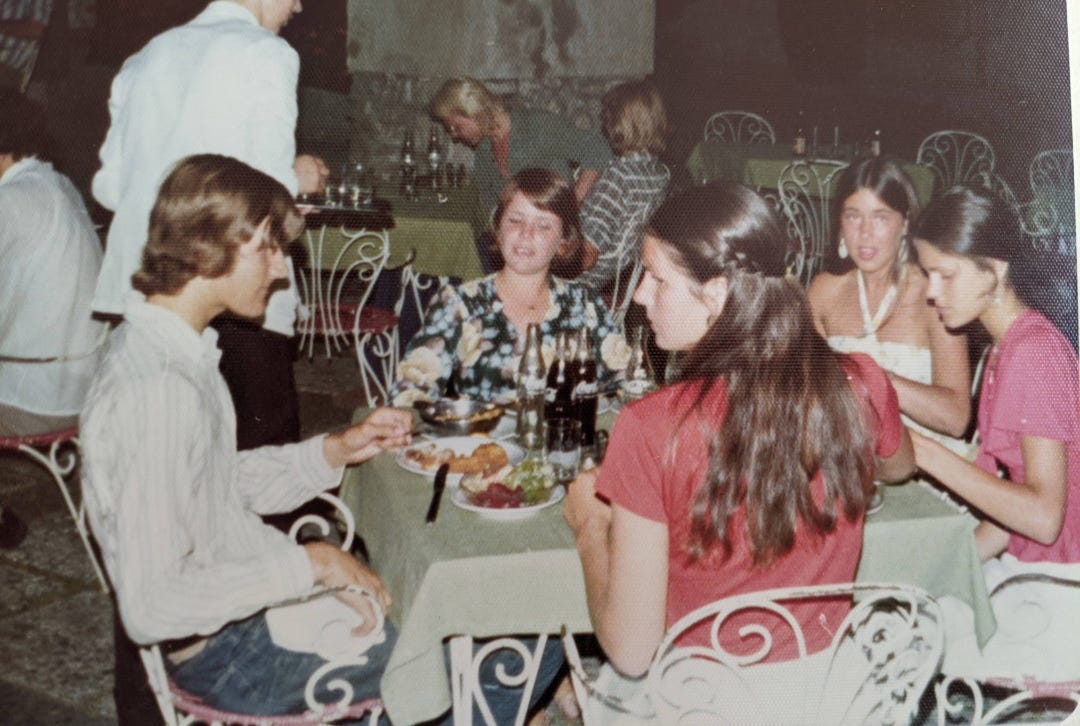
I knew he came from that country, but I didn’t know he came from a village near Lake Bled. I kept the ticket to the castle above the lake and wrote on it in French that one day I would live there. When we got married, I gave him that ticket.
It seemed like a fairytale come true.
Once I got married, my husband started abusing me. I had never experienced physical abuse. I was embarrassed, ashamed and terrified. I was far from home, and I had no friends. It was as if everything I thought was real had turned into something else.
My husband was a Christian. His appearance in public was angelic. He told me he loved me, but I needed to learn how to be a better wife. So, I tried. Perhaps God had put me in his life to help him get over his anger. I tried my best to anticipate his every need so he wouldn’t get angry. But since I could never be perfect there was always a reason why I needed to be punished. I chewed my food too loud; I didn’t cook noodles the way his mom did, I ironed his shirts with a crease when there shouldn’t be one.
After the abuse, I always said I was sorry, because, of course, it was always my fault. And he graciously forgave me. Things would be wonderful for a while after that and I always thought, this time it will be different for good. But it never was. Inevitably, I made another mistake, and the abuse started all over again.
About a year before I escaped my husband, he and I had gone back to Los Angeles to visit my parents. My parents found out about the abuse and my dad got very angry. He sat us all down at the dining room table, and proceeded to lecture my husband, reading verses from the Bible. My husband broke down and confessed his sin. He asked for forgiveness, and I was expected to forgive him, which I did. We all prayed together.
I thought surely, after what my husband had confessed, my daughter and I would be able to stay with my parents. But they sent us back with him. I was admonished to pray for him, and to pray that I would be a good, loving wife. After all, he was sorry now. I wanted to scream and plead, but I said nothing. I chided myself for my unbelieving heart. Of course, things would be better now. I just had to believe.
All was well until one evening I was supposed to accompany my husband to a party with some important people in the music industry. I took too long coming down the stairs and by the time I reached him at the bottom, the demon had taken over. He put his hands around my neck and began to squeeze. The next thing I knew, I was on the ground, coughing and gasping for breath. I had passed out. He had almost killed me.
Something changed in me that night. All my trying to be “good” fell away and my rebellious spirit finally rose to the surface. My heart turned to stone. The next time he threatened to hit me, when water dripped on the floor from a plant I had watered, I looked him in the eyes and said, “I don’t care if you kill me, I’m not afraid of you anymore.”
And the truth of the matter is that I wasn’t. For a moment, he stared back at me, and then he walked away. He never hit me again. I think even he had been scared by the fact he had almost strangled me.
It helped that, opportunely, he had developed a relationship with a Russian woman who lived in Belgrade, an impoverished “aristocrat” (Belgrade was filled with such characters at that time) who claimed to be a psychic—a whole other story. I was just glad his focus was off of me.
It was spring and the days my daughter was in daycare, I started running in Kensington Gardens. Suddenly, I noticed the flowers pushing up out of the ground, the blue sky and puffy white clouds, the birds singing. How beautiful London was! Every day, even if I didn’t feel like it, I put on my shoes and went out the door and ran. I felt myself growing stronger, not just physically but mentally. I learned not to rely on my emotions, to stop making excuses for myself. Just put on those shoes and do what I had determined to do.
I started planning my escape. Finally, I understood that I had been my own worst enemy. No one was going to save me but myself. I told my parents what had happened and that I wanted to come back, and they agreed. They got me plane tickets for when my husband would be in Yugoslavia. I waited anxiously for the day to arrive.
About a week before I got on the plane something even more terrible happened. This is the part of the story that is hardest to share, that I have never shared before. But when I see women donning hijabs, keffiyeh scarves, and supporting oppressive regimes that would likely kill them, it makes me so angry, I cannot be silent anymore.
I had come so far in freeing myself. I was almost ready to get on that plane. And now, I experienced a terrible setback.
That day, I had been to the library, and I was waiting for the bus to go home. It was cold, rainy and miserable and I was feeling dejected and worried. Would I be able to get on the plane. If all went well, my husband would be in Yugoslavia with the Russian woman, working on his latest album. But what if something happened and he changed his plans.
As I stood there in the rain, these thoughts running through my head, a shiny black Mercedes pulled up and the man inside offered me a ride. He was someone I knew from a cafe near Bayswater where I went to drink tea and read and write. He was Jordanian and had an important job at the Jordanian Embassy. He would always say hello to me, in a polite and respectful manner.
Since I knew who he was, I accepted the ride gratefully. Instead of taking me home, he stopped at the parking lot near the Serpentine Gallery, insisting we get a coffee. By this point, it was dark, and the parking lot was empty. I didn’t want a coffee, I just wanted to go home.
But he got out of the car and came around to my side. I assumed he was going to open the door for me to get out. Instead, he climbed on top of me and raped me. He was a big man, and I was crushed beneath his weight. Not being able to breathe put me in a panic, like when my husband had his hands around my neck. It all came back to me, and when I tried to say no, it was like the screams in a nightmare.
I descended into a dark place, a kind of cocoon. Who was I anyway, to complain. For years, my husband had conditioned me not to open my mouth. If I even dared to talk at a party or a dinner, I was lectured afterwards, sometimes hit or kicked because I had embarrassed him.
And now, as I tried to say no, the words meant nothing. I couldn’t even get them out of my mouth. I had thought I was gaining my voice back. I was just about to be free. Who did I think I was fooling?
How many times does a woman have to say no? In how many different ways? How loud, how insistent must she be? Does she have to fight physically? If she does, won’t she just get hurt more? I’d never hurt anyone; I’d only ever been hurt. Better to just let it happen and get it over with.
I stopped struggling. I felt numb. After it was over, he made small talk, as if we were back in the cafe, and I stayed quiet. What could I say? It was over. It was done. He took me home.
I never went back to the cafe after that. I told myself that it hadn’t even happened. Thank God, I was soon on that plane with my daughter. I dread to think what would have happened to me, to my daughter, if I hadn’t been able to get away.
I’ve never thought all Middle Eastern men were evil because of what that man did to me. My husband was Slovenian, after all. He claimed to be a Christian.
Even so, once I was living in Luxor, Egypt, I learned an important difference between me and the women there. I had options for escape, whereas Muslim women don’t. It’s illegal to abuse women and children in the West. In Islamic states, it isn’t. When the law of the country—the religious law—gives men the right to treat women worse than animals, what can women do? It was hard enough for me to get away. For Sheikha Latifa it was impossible.
I speak out so passionately and tell my story so that people will understand how important it is that we protect the freedoms we still have. Especially for women. That is why I back up my words with actions, like teaching women and girls to defend themselves.
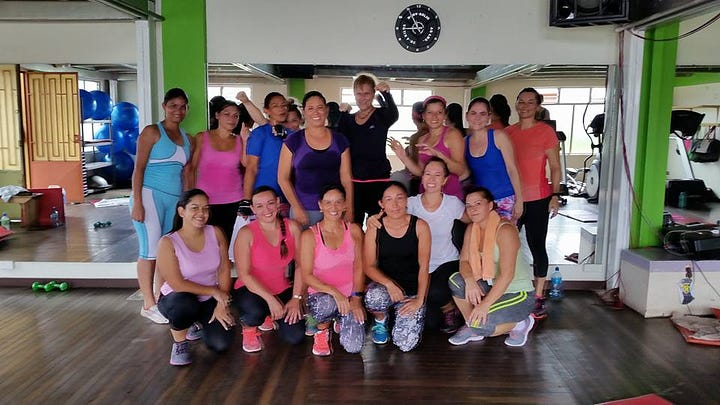
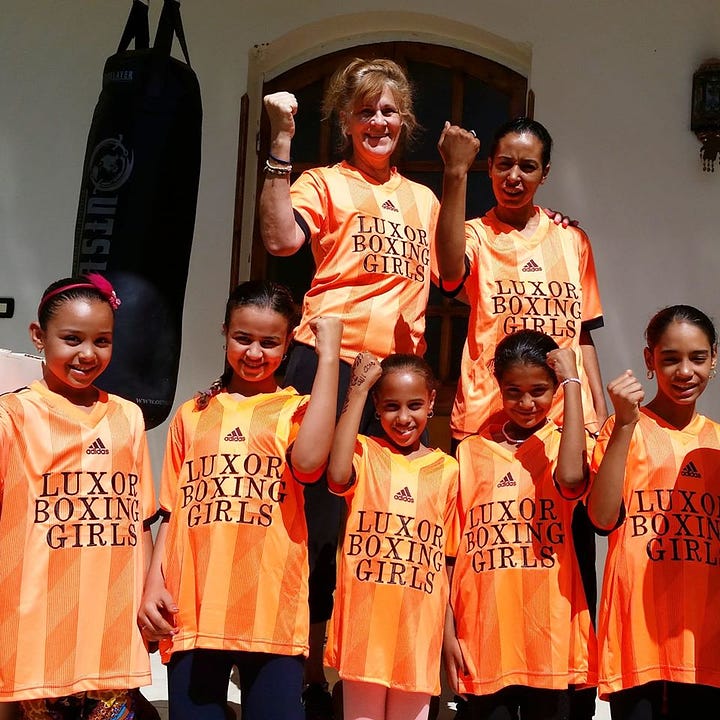
Once I left my husband, and returned to my parents’ home, I started training as a fighter. I trained in a martial arts gym with my brother and fortunately, my parents approved of this training. I learned to fight with my fists, and with weapons. I trained every day, vowing that never again would I be powerless. I learned how to turn the tables, how to inflict pain on my enemy. Not out of a desire to do so. But out of a real-life understanding that such abilities are needed in this world.
When I hear people’s high-minded talk about how they don’t support any war or any killing of innocent babies or women, this makes me angry. Of course, it sounds nice. Only psychos promote wanton violence. But when those who claim they don’t support violence, make it easier for the psychos to inflict violence—even on themselves—I have to stand against such insanity.
We know how women are treated under Islamic law. Day after day, we hear the proof of it from the real-life stories of women. We know how anyone in an Islamic state who dares to protest against it is tortured and killed. They tell us in their own words. Yet we still make excuses. We still insist on denying it. Why would anyone want to make it easier for that psychotic mentality to infect us in the West when we already have enough problems as it is?
If I can save one girl from going through what I went through, then it’s all been worth it. That’s why I speak out. That’s why I do more than just talk about it.
I identify with those who know what real torture means. I have been tortured by a man who said he loved me. I allowed it because I thought I was doing the right thing, based on my religious upbringing as a child.
My heart goes out to courageous people like Mosab Hassan Yousef who exposes the savage indoctrination of Palestinian children by Hamas. The fact that he has to explain to his audience that Hamas is so evil it captures babies and wants to exchange them for mass murderers and people still don’t get it is beyond comprehension.
They can do this because their religion advises them to torture even their own children. And not just extremists like Hamas, it is a normal part of growing up under Islam. In her book Unveiled, Yasmine Mohammed talks about “the fear of Allah”. Fear that is engrained in people since childhood. As Yasmine states, more than 70% of children in Middle Eastern Muslim countries are disciplined in a violent manner. In Egypt it’s 90%. I saw that abuse when I lived in Luxor.
If I’d been raised with such abuse, added onto my strict religious upbringing, perhaps I wouldn’t have been able to escape my husband. Where would I have gone?
If you watch the video above, you will see Mosab’s frustration, and the passion with which he speaks as he tries to warn people, knowing that many will refuse to listen. He describes how as a child of ten he was beaten with electric wires until he passed out, by those who wanted to teach him to be filled with hatred toward Jews. And then, he was supposed to go to the Mosque and pray. Yasmine describes how she was tied to her bed and beaten on the bottom of her feet until they bled because she hadn’t memorized the Quran properly.
I have so much respect for the women in Islamic states who have stood up so bravely against such insurmountable odds. One such woman is Saudi Arabian newscaster, Buthayna Nassar. Here is a little known but powerful interview she did with Nasser Al-Huneini:
Nasser Al-Huneini: On the issue of the hijab, all religious scholars are in agreement that if revealing a woman's face might lead to temptation and other things, it is forbidden. In addition, even when they permitted the revealing of the woman's face, they placed restrictions on this. Even Sheik Al-Albani did so. They stated that only the face and the palms may be exposed. The woman is not allowed to expose her neck or her hair. She is not allowed to appear with make-up or jewelry. The religious scholars have all agreed upon this.
Buthayna Nasser: Sir, when I appear on TV, and when I claim my right to play a role in this professional field, I demand that my face, which constitutes my identity, be seen. Under no circumstances am I prepared to allow my identity to be obliterated.
Who are these people who wish to decide for me how I should behave? Why do you treat me as less qualified just because I am a woman? Why is there always a male voice deciding how I should behave? The Lord created me equal to you in my duties, punishment, and reward. When you fast, I fast. When you pray, I pray. When you steal, your hand is cut off, and when I steal, my hand is cut off. This is the greatest evidence that I am not less qualified. I know what I am doing, and I know how to maintain my honor.
From the age of six or seven, from elementary school until high school, when we reach the age of 18, and even later, when we go to university - we memorize, memorize, and memorize. Whoever dares to argue or to question anything is called upon to ask for Allah's forgiveness. He is told that this will get him into Hell. You, who frighten people with Hell, have brought them a hell upon earth. You have banned books of the various intellectual streams. You've prevented the mind from operating, thinking, comparing, and choosing, even though it is the same mind that the Creator gave people in order to choose between Paradise and Hell…. Yes sir, we are being brainwashed on a daily basis, through schools, through the Koran memorization schools…. Enough memorizing like parrots. Yes, we are all brainwashed, except for the few spared by God.
I understand what Buthayna is saying because I saw this type of brainwashing every day in Luxor. It wasn’t just some small segment of society, a cult over in the corner. People in the West really have no concept of what it means for religion to control every part of your life—on a national level. From the moment Muslims in Islamic states are born to the moment they die; from the moment they wake up to the moment they go to sleep, religion oppresses them. Their religion is stated on their birth certificates and if they leave their religion, they can be killed.
As Buthayna says, learning in the mosque means memorizing, memorizing, memorizing. You get up in the middle of the night to pray. And then when you get up in the morning and you go to the cafe, the Quran is playing on microphones. It is recited over and over. It does not stop.
After living in Luxor for a couple of years, I became aware of the many social media sites for women married to Egyptian men. To give my readers a taste of what it’s like to blissfully embrace Islam, only to have second thoughts after marriage when the reality hits home, here’s a couple of questions women asked of the more seasoned married Muslim women in these groups.
In an anonymous post, a woman describes how she was talking to her seven-year-old daughter and laughing about something while her husband was at the door talking to the bawab (the doorman). Once her husband finished the conversation, he slammed the door angrily. When she asked why he slammed the door he said, “It’s better I slam the door than your face.”
The woman could not believe this treatment was okay. It was not the first time she’d faced his wrath. She asks if such treatment is allowed in Islam.
The responses of the religious women do not even address the fact that her husband threatened her with violence. It is the woman’s responsibly how her husband reacts, depending on her behavior.
Here is the advice married Muslim women offered her:
Women with hijab especially niqab have haya (meaning “more than just modesty” in Islam). They don’t make themselves known to anyone it’s part of us preserving our identity, our modesty and our beauty. Beauty isn’t just in what you see but also what you hear. What would be the point of fully covering only to go outside and laugh hysterically for all to look at me - that would mean I’m seeking attention not avoiding it right …
Here is another response with a woman citing the scholars and more here:
Shyness is one of the characteristics of the Muslim woman. Her voice is like an ‘Awrah (meaning the parts of her body that can only be seen by her husband and family—her face, hands and arms). She should avoid being soft (meaning to be seductive) in her speech in the presence of non-Mahram men (meaning men who are not her husband, brothers or father).
It is prohibited for women to raise their voices in conversation with men to hear them, because a woman's voice brings them closer to fitnah (falling into sin and hypocrisy). Please refer to Fatwa 84462.
“And let them not stamp their feet to make known what they conceal of their adornment” (An-Nur: 31)
Here is another common question that one hears often in these groups:
So, today I found out men in Islam when they go to heaven get to have multiple women to sleep with. Basically 2 "earth women" and a minimum 2 al-hoor al-‘iyn. All while married women get the same husband! We even have to wear a hijab in heaven! Oh, by the way, no problem, our jealousy gets removed so we just smile and say F**k away! I've been feeling livid all day, haven't even slept today honestly. What is the point, don't women pray? Fast? Wear modest clothing? Have babies and periods and their bodies suffer, worry in this life when men flirt with women to be given the green light in the afterlife? To me it just sounds like one big p**n movie men get to enjoy a multitude of women while women get to lower their gaze and enjoy their husband.
Here is a married Muslim woman’s answer:
The Messenger of Allah (may Allah bless him and give him peace) then replied, “Tell all the women that you meet that obeying their husbands and seeing it as their husband’s right over them, equates to the men’s reward in striving in the path of Allah. However, few of you (wives) do that.”
Meaning, if women don’t obey their husbands, then their husbands won’t get these rewards in heaven. Women are then chided because few women obey their husbands as they should.
In the hereafter, men get what is called hoor-al-iyn:
Rawdat al-Muhibbeen, p. 244 ded
As for the hoori who is one of the delights of Paradise, she has only been created in Paradise for the sake of a man and has been made the reward for the believing man for his righteous deeds.
A wife in this world will be a queen and a princess of her husband in the afterlife. Her husband will also have the hoori, who are like slaves. The wife will still have to obey her husband, but she will want to obey her husband, so what’s the problem? The texts say, “There is a great difference between one who enters Paradise as a reward for her righteous deeds and the one who was created as a reward for one who did righteous deeds”, but I really don’t see the difference, do you?
In answer to the question, what do women get?
[Fussilat 41:31-32]
For women there is an equivalent delight. By in His great wisdom, Allah has not mentioned what the women will have, and that is due to modesty and shyness. How can He encourage them to seek Paradise by mentioning something that they are too shy and modest to mention or speak about themselves?
The modesty thing is so convenient, isn’t it?
One Muslim wife explains to her the wonderful life of women in Paradise:
Ibn al-Qayyim said:
Allah describes them as being “guarded in pavilions”, i.e., they are prevented from making a display of themselves before anyone except their husbands. They are guarded for their husbands and they do not go out of their houses, and they restrain themselves for them and do not desire anyone else. And Allah describes them as “Qaasiraat‑ut‑Tarf [chaste females (wives) restraining their glances”. She focuses her love upon her husband, she is content with him and does not look beyond him at anyone else.
Women in paradise are there to serve men, just as they are here on earth to serve men. But women on earth are disgustingly impure:
Allah describes women in Janna as pure: “and they shall have therein Azwaajun Mutahharatun (purified mates or wives)”, pure from menses, urine and the like (stools) and all off-putting features that may exist in the women of this world. And their hearts are pure from envy, annoyance of their husbands, meanness or wishing for husbands other than them.
Husbands can do whatever they want to these women, use them as many times as they want for sex, and each time they will always return to being virgins.
After all these responses, the woman who asked the question gets even more upset (understandably) and says:
When u say "hoors", do u mean whores? Bcz if that's what u mean, how can u say that? Do u really think that there will be whores in Jannah?! I'm flabbergasted!
To which a Muslim wife responds:
U're upset about something that isn't true. Didn't u also read in the Qur’an and hadiths that we won't be the same creation? Do u think we'll hv periods in Jannah? Or be jealous? U need to get to know the true meaning of the words in the Qur’an.
Another religious woman chides her:
You're looking at it from an earthly perspective. If you reverted just to be able to screw in heaven, then seriously you reverted for the wrong reason!
Never mind that this is exactly what men are looking forward to doing.
So, there you have it. After all the suffering women go through on earth this is what Muslim women have to look forward to in paradise.
Will Sheikha Latifa get her reward in paradise? As far as I know, she isn’t married. What happens to women without husbands in paradise? They only find salvation through a man.
In 2021, Dubai’s royal family assured the public that Latifa was being “cared for” and would “return to public life at the appropriate time”. That “appropriate time” will no doubt never come.
Meanwhile, Meghan parties and complains about her oppression.
I left Christianity for a long time, because of what happened to me in my marriage. It took many years for me to come back to my faith. Now, I prefer to call myself a follower of Jesus rather than a Christian. If we all followed Jesus’ teachings of the Sermon on the Mount, we would already be living in a paradise.
And seeing the multitudes, he went up into a mountain: and when he was set, his disciples came unto him:
And he opened his mouth, and taught them, saying,
Blessed are the poor in spirit: for theirs is the kingdom of heaven.
Blessed are they that mourn: for they shall be comforted.
Blessed are the meek: for they shall inherit the earth.
Blessed are they which do hunger and thirst after righteousness: for they shall be filled.
Blessed are the merciful: for they shall obtain mercy.
Blessed are the pure in heart: for they shall see God.
Blessed are the peacemakers: for they shall be called the children of God.
Blessed are they which are persecuted for righteousness' sake: for theirs is the kingdom of heaven.
Blessed are ye, when men shall revile you, and persecute you, and shall say all manner of evil against you falsely, for my sake.
Rejoice, and be exceeding glad: for great is your reward in heaven: for so persecuted they the prophets which were before you.
Let your light so shine before men, that they may see your good works, and glorify your Father which is in heaven.
My father and I repaired our relationship many years later, but that’s a story for another telling. As those of you who’ve been reading my essays know, he had a great impact on my life.
It might surprise people to know that I will always be thankful I married my husband. How could I not when my beautiful daughter and three grandsons are worth more to me than anything in the world.
I took my daughter to Slovenia many times when she was growing up so she would know her family there and be proud of her Slovenian roots. Her story is not my story, and she has found her own way. Slovenia is still a second home to me, and I dearly love all of my husband’s family and they love me. They are wonderful people. Years ago, at my mother-in-law’s grave, my husband asked again for my forgiveness, and I forgave him. He had no more power over me.
There are more important things in life than holding onto bitterness and anger.
Reading the Sermon on the Mount as a child, I was always drawn to being a peacemaker. Please Lord, I would pray, let me be a peacemaker. My life has been filled with so many battles, so much violence. I always thought God didn’t listen to my prayers. But now, finally, with this writing, I see he answered me in his good time.




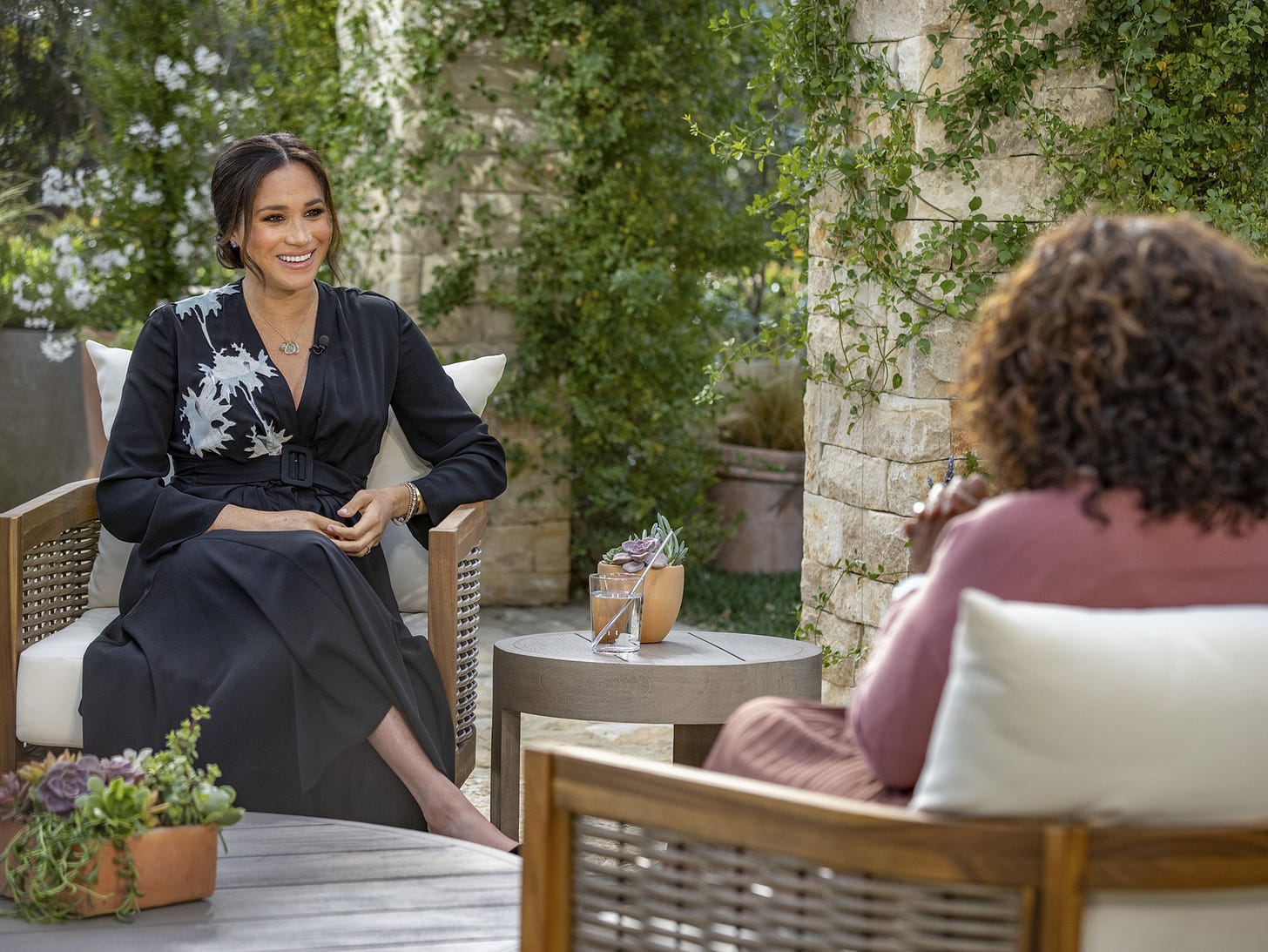
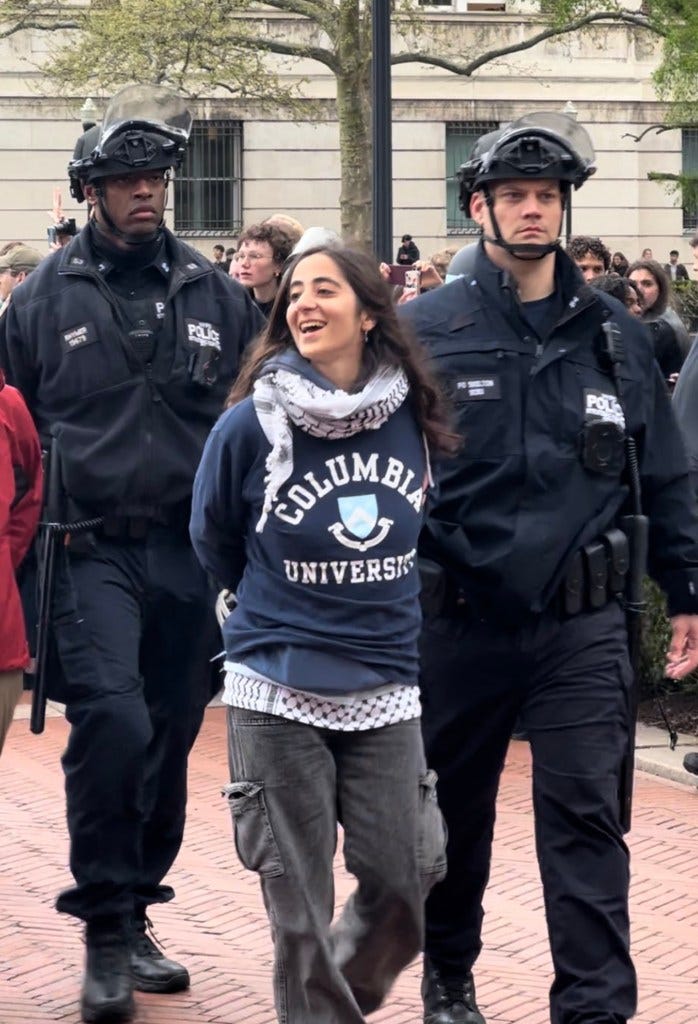
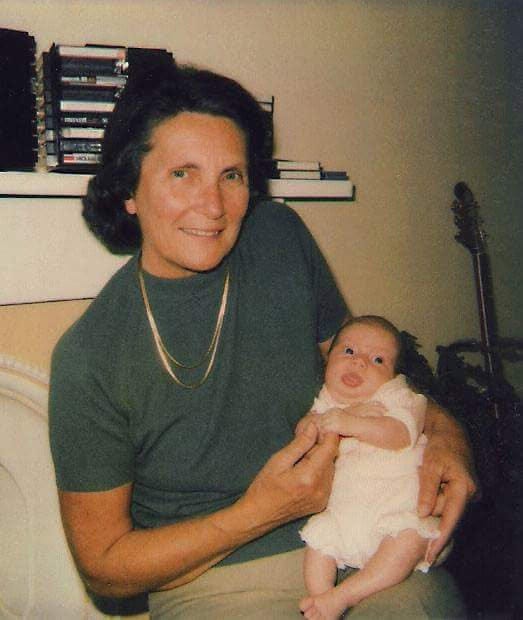

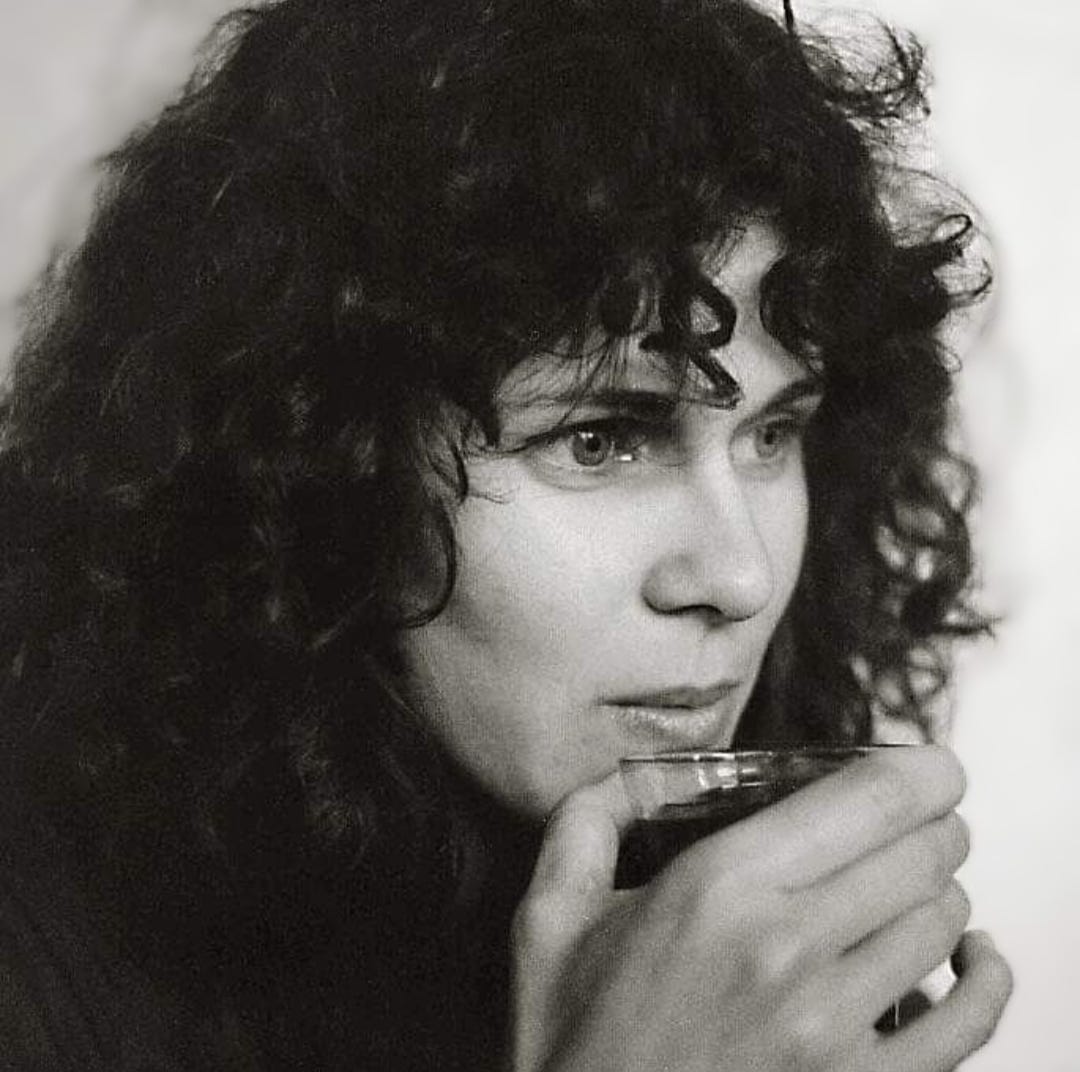
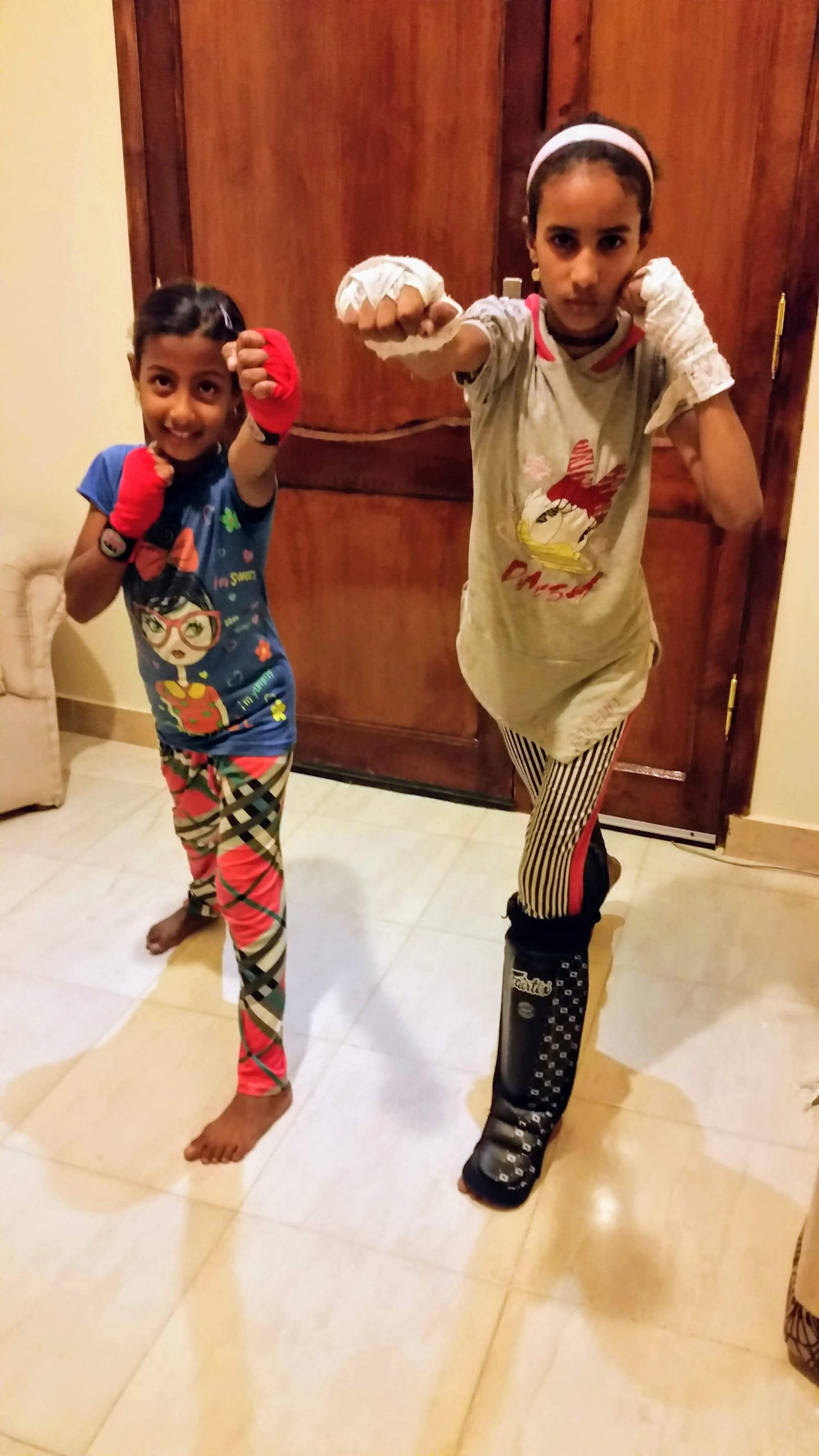

Words escape me to add to the chorus but the world could be better if a lot of people would read this.
This essay is profound on so many levels. I admire your bravery in overcoming the horrors of your younger years. You did not reject Jesus or blame God. You are a woman of action and I know your parents are roaring support for you from heaven and rejoicing at the impact you are having on the world!